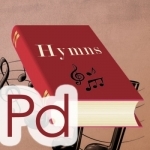
The Economist newspaper
News and Magazines & Newspapers
App
A smart guide to the forces that shape the future, readers can access their essential global...

The Economist: News & Business
News and Magazines & Newspapers
App
A smart guide to the forces that shape the future, readers can access their essential global...

The Economist: Business News
News and Magazines & Newspapers
App
A smart guide to the forces that shape the future, readers can access their essential global...

The Economist: UK & World News
News and Magazines & Newspapers
App
A smart guide to the forces that shape the future, readers can access their essential global...

The Economist: World & US News
News and Magazines & Newspapers
App
A smart guide to the forces that shape the future, readers can access their essential global...

The Economist: US & World News
News and Magazines & Newspapers
App
A smart guide to the forces that shape the future, readers can access their essential global...

The Economist: News & Politics
News and Magazines & Newspapers
App
A smart guide to the forces that shape the future, readers can access their essential global...

The Economist: World & UK News
News and Magazines & Newspapers
App
A smart guide to the forces that shape the future, readers can access their essential global...

Wynk Music - Hindi and English songs
Music and Entertainment
App
Wynk Music is a music streaming & downloading app, for every mood! From Rahman to Rihanna, it has...

Evangelical Lutheran Hymnal
Music and Book
App
Hymnal for the Evangelical Lutheran A collection of over 280 of your favorite hymns with full...